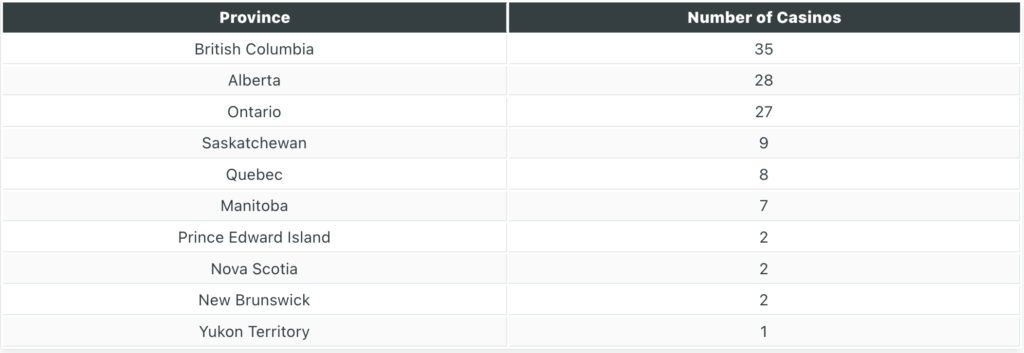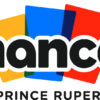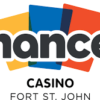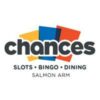
Canada’s Thriving Gambling Sector
The gambling sector in Canada is a significant economic force, encompassing a variety of activities including land-based casinos and sportsbooks, along with online sports betting and casino gaming. Legally sanctioned activities such as bingo and raffles also contribute to this vibrant industry. These activities are regulated at both the national and provincial levels.
Key Statistics of the Canadian Gambling Market
In 2023, the value of Canada’s gambling market reached approximately CA$14.2 billion. This represents a decrease of 3.9% from the previous year, influenced by the prolonged impacts of the global pandemic. Despite this decline, the gambling industry in Canada continues to:
- Contribute about CA$9 billion annually to support government and community initiatives.
- Provide employment to over 135,000 individuals.
- Stand as the largest entertainment sector in the country.
Online Gambling in Canada
Online gambling holds a legal status in Canada, with each provincial government having the authority to regulate the online market locally. Numerous provinces have embraced this opportunity, offering legal online gambling through government-operated lotteries and gaming entities.
Ontario is currently the only province with an operational online gambling market that includes participation from private enterprises through iGaming licenses.
The Grey Market
The Canadian approach to offshore online gambling sites is one of non-interference, as these are not considered under Canadian jurisdiction. This allows Canadians to legally gamble on sites that are licensed in other jurisdictions. Consequently, this has led to the emergence of the ‘grey market’ in Canada, where online gambling platforms, licensed by global authorities like the Malta Gaming Authority and the Curaçao Gaming Control Board, are accessible to Canadian players. This situation may evolve as more Canadian provinces might opt to establish regulated online gambling markets like Ontario.
Ontario’s iGaming Market
Ontario’s online gambling market launched on April 4, 2022, with 13 licensed providers initially approved by iGaming Ontario (iGO) and the Alcohol and Gaming Commission of Ontario (AGCO). Currently, there are 46 licensed operators in Ontario offering a diverse range of online gambling services, often across multiple platforms.
Key Statistics from Ontario’s First Year in iGaming
- 46 licensed online gambling providers.
- 1.6 million active customer accounts.
- Average monthly expenditure per account is CA$70.
- Total wagers amounting to CA$35.6 billion.
- Combined revenue from these activities reached CA$1.4 billion.
- Ontario ranks among the top five iGaming jurisdictions in North America, with 85% of local gamblers preferring regulated sites.
Online Casino and Sports Betting Activities in Ontario
- Online slots account for 48% of all wagers.
- Live dealer games constitute 32% of the betting volume.
- Virtual table games represent 19% of the stakes.
In the realm of online sports betting in Ontario:
- Basketball leads with 28% of all bets placed.
- Soccer follows with 15%.
- Football attracts 14% of the betting action.
- Hockey and baseball garner 9% and 8% of the bets, respectively.
In the first quarter of the fiscal year 2023-24, total betting in Ontario surged to CA$14 billion, a dramatic 243% increase from the previous fiscal year’s first quarter.
Land-Based Casinos in Canada
Regulation and Ownership of Canadian Casinos
All casinos operating in Canada are required to be registered and regulated by provincial lottery and gaming corporations. While the casino operators manage these facilities, they function legally as representatives for the lottery corporations.

Overview of Land-Based Casinos
As of 2023, Canada boasts 121 land-based casinos that provide a variety of gaming options. Among these, 89 casinos offer both table games and slots, while the remaining 32 are dedicated to slots and video gaming machines. Additionally, there are 17 First Nations tribal casinos contributing to the diversity of the gambling landscape.
Geographical Distribution of Casinos
British Columbia leads with the highest number of casinos, totaling 35. In contrast, Newfoundland and Labrador, Nunavut, and the Northwest Territories do not host any commercial casinos. Ontario stands out with the largest collection of slot machines, numbering 23,750, while Quebec holds the distinction of having the most video lottery terminals (VLTs) in the country, with a count of 9,900.
Sports Betting in Canada
Evolution of Sports Betting Legislation
Sports betting was officially sanctioned in Canada in 1985, but it wasn’t until the early 1990s that provincial governments began to capitalize on this legislation by introducing sports wagering through state-owned agencies and lotteries. Initially, only parlay betting on sports was permitted.
Legalization of Single-Event Sports Betting
In a significant legislative shift, the Canadian federal government passed bill C-218 in 2021, which legalized single-event sports betting. This bill empowered provincial governments to manage their own single-event sports betting markets.
Adoption of Single-Event Sports Betting
Following this legalization, single-event sports betting became available across Canada through government-operated lottery corporations. Ontario set a precedent by becoming the first jurisdiction to open its market to privately-owned sportsbooks. Presently, there are 25 licensed operators offering online sports betting in Ontario.
Canada Gambling Revenues
For the year 2023, the expected gross gaming revenue (GGR) from the Canadian gambling market is projected to be CA$14.2 billion.
Financial Performance by Gambling Vertical

The table below provides the most recent data from 2022 on net revenue and net income from different gambling verticals within the Canadian market. According to these figures, charitable gambling alone has generated a net income of CA$691.4 million for Canadian charities.
Gambling Participation in Canada
Demographics of Gambling
In Canada, 64% of individuals aged 15 and above—that’s about 18.9 million people—reported engaging in gambling activities at least once over the past year. Gender differences are notable, with 69% of men and 60% of women having gambled during this period.
Age and Income Correlations in Gambling
The prevalence of gambling is highest among those aged 45 to 64, with 76% of men and 68% of women in this age bracket participating. Additionally, gambling frequency varies with income levels; 53.8% of those in lower income brackets gamble compared to 71.5% from higher income brackets.
Lottery and Sports Betting Preferences
A significant portion of Canadians, 51.8%, have purchased lottery tickets in the past year. Men are notably more inclined towards sports betting, with 12.1% having placed bets compared to 3.9% of women. Furthermore, 10.2% of men and 4.8% of women have gambled on casino games, whether online or land-based.
Problem Gambling in Canada – Stats & Research
Problem gambling affects a small but significant segment of the population, with approximately 304,400 Canadians identified as at moderate or severe risk of problem gambling. Men are more likely to be at risk, with 2% facing potential gambling disorders compared to 1.2% of women. The Canadian Community Health Survey (CCHS) of 2023 reported that 2% of Canadians aged 15 and older have a gambling problem, and 73% believe that gambling-related issues have increased within their province. Despite these concerns, 83% of Canadians feel that individuals should manage their own gambling behaviors.
Self-Exclusion Programs
Unlike some jurisdictions, Canada does not have a national self-exclusion program, but provincial government-run gambling operators do offer voluntary self-exclusion programs that allow individuals to restrict their access to gambling facilities.
Canada Gambling Industry Fines
Fines within the Canadian gambling industry are relatively uncommon. In 2022, provincial gambling regulators issued only three fines. However, in 2023, the number has increased to seven fines. The largest fine recorded was a CAD$100,000 penalty levied against Apollo Entertainment by the Alcohol and Gaming Commission of Ontario (AGCO).


















